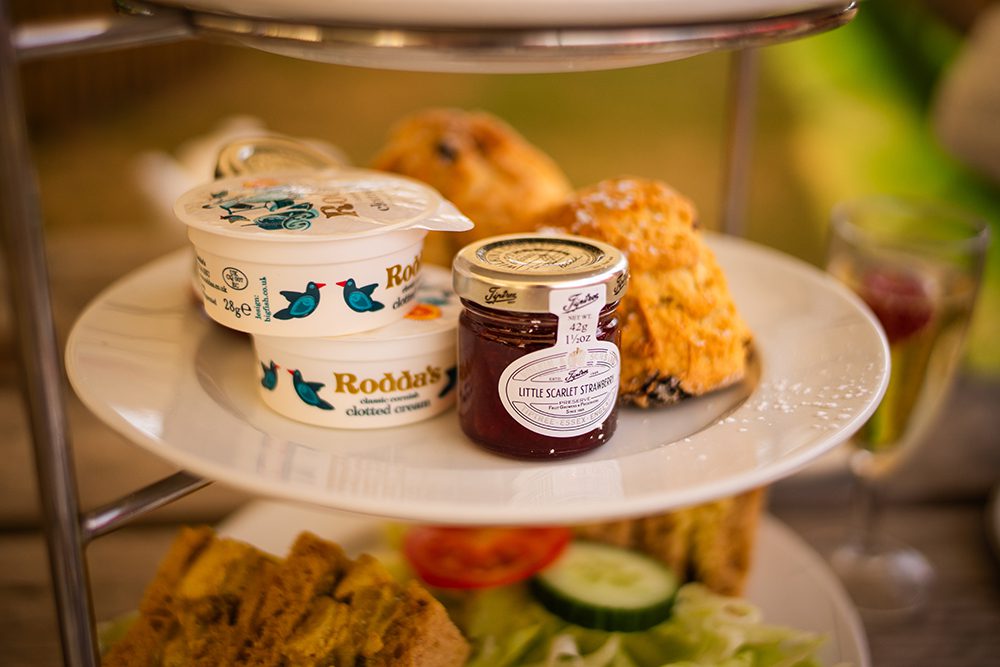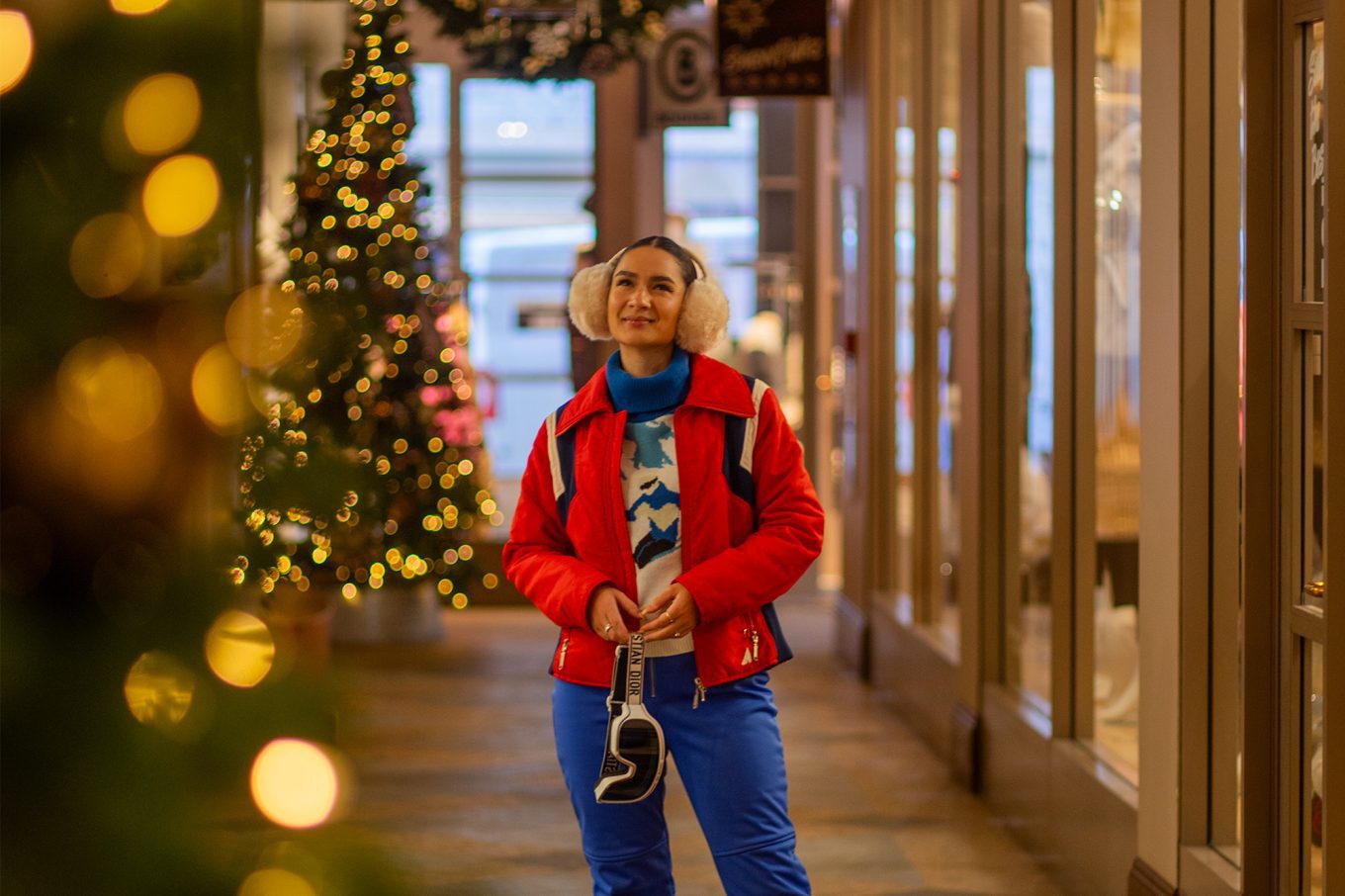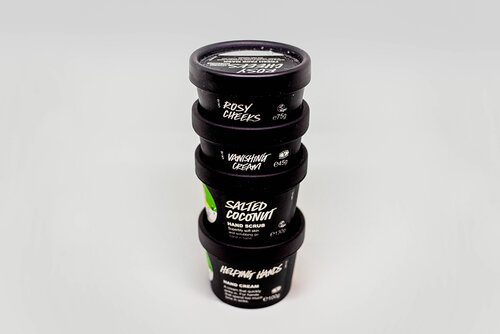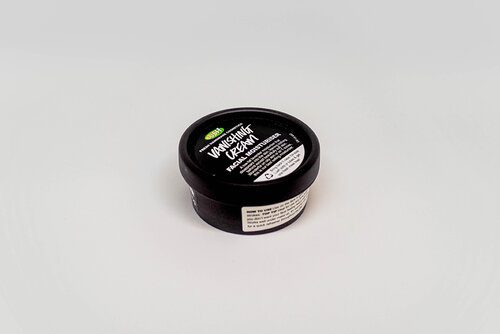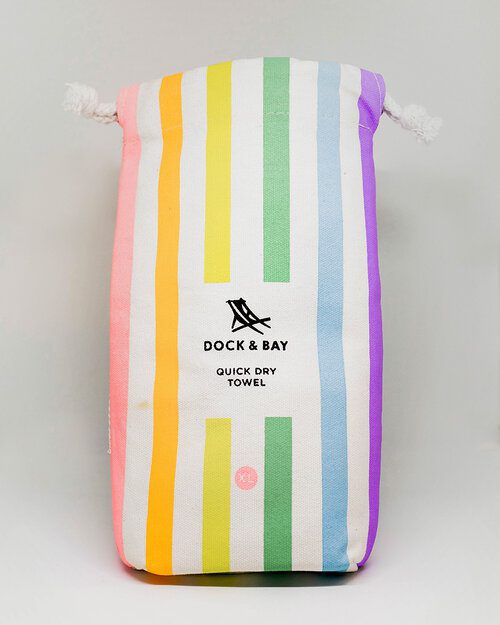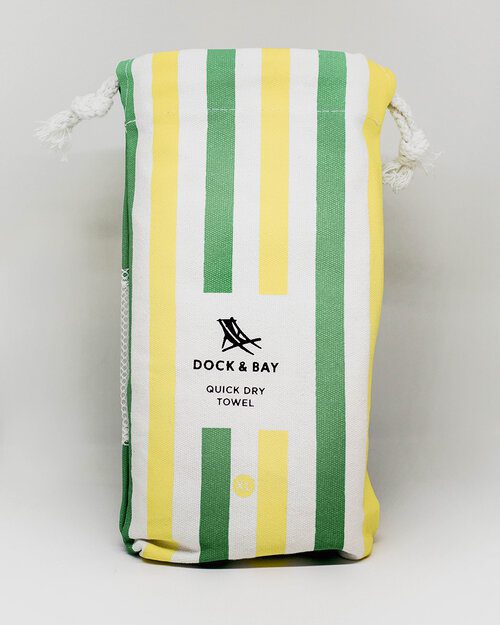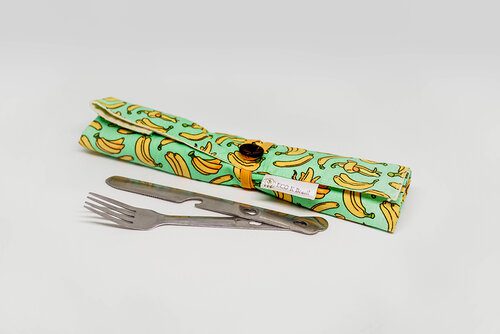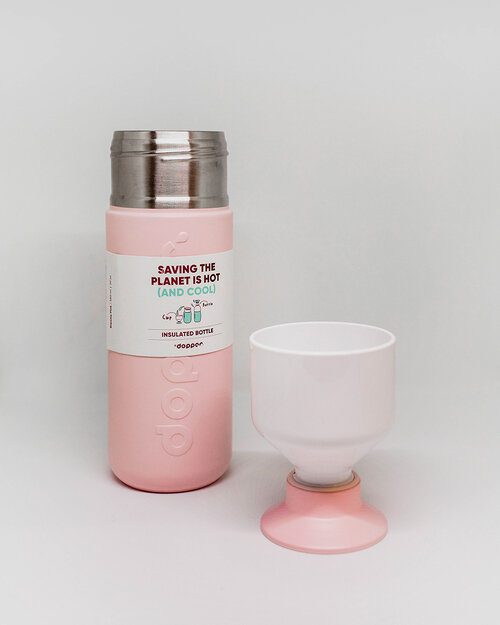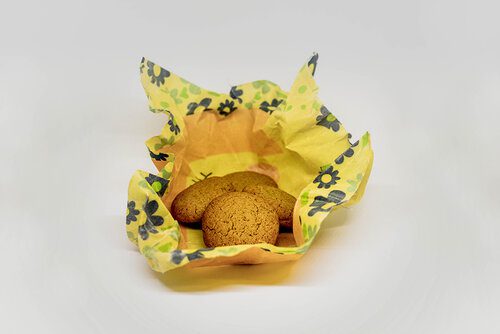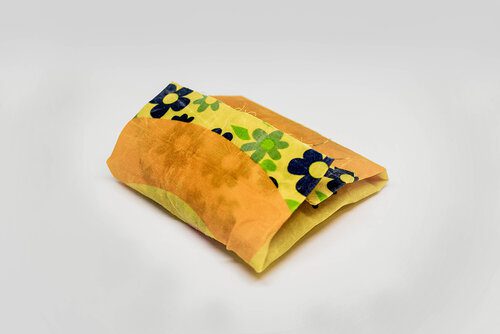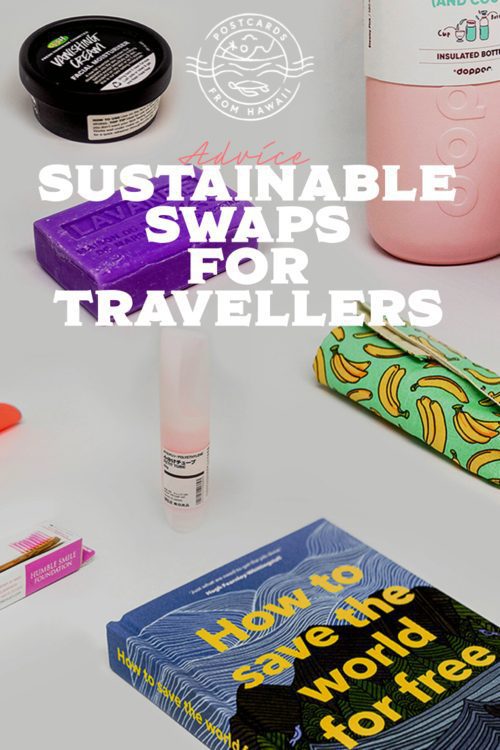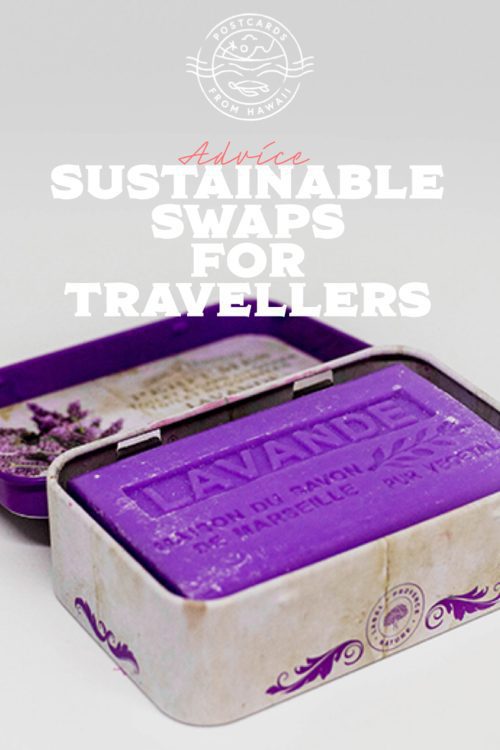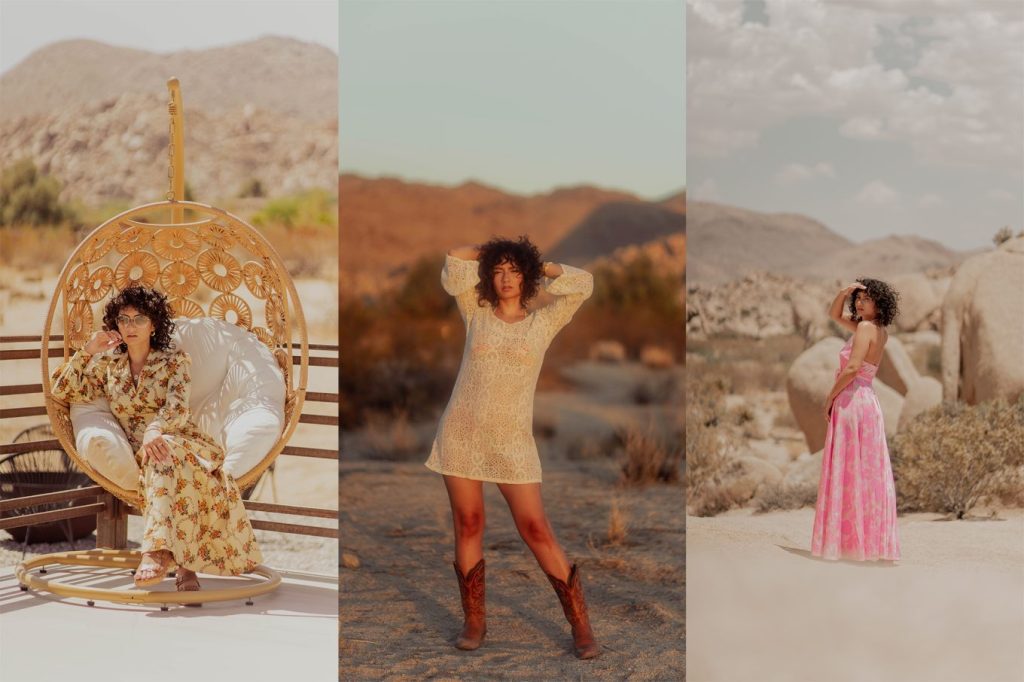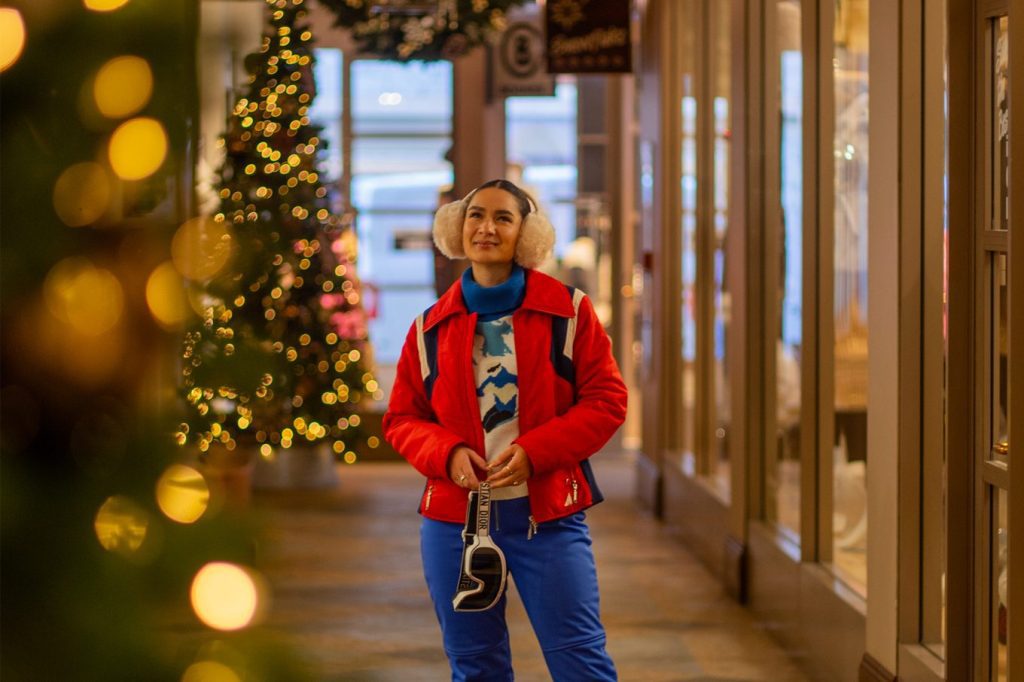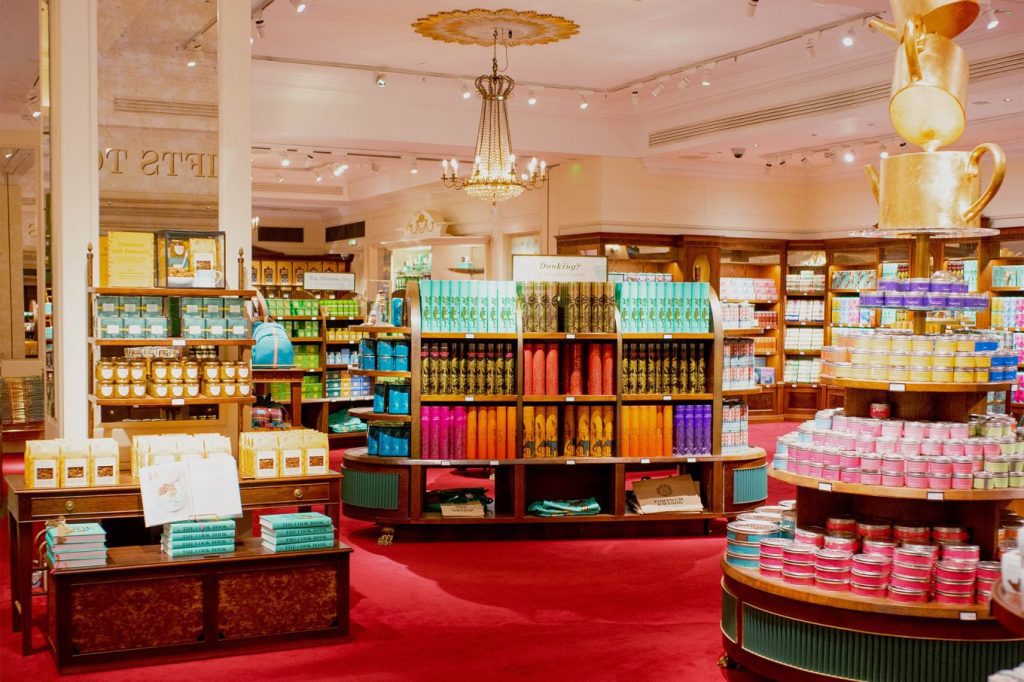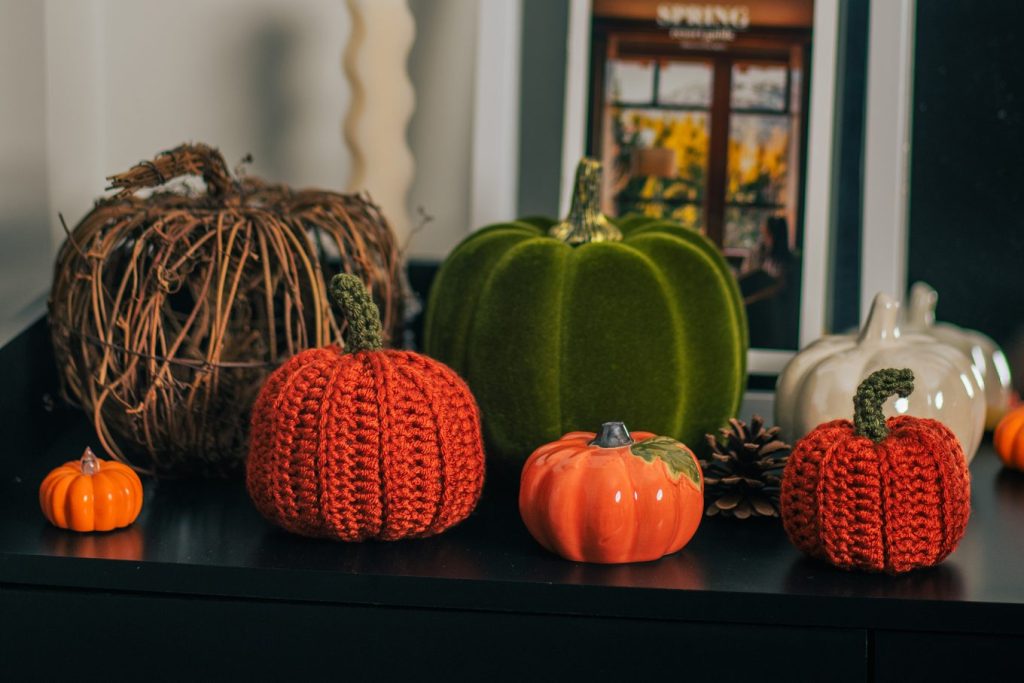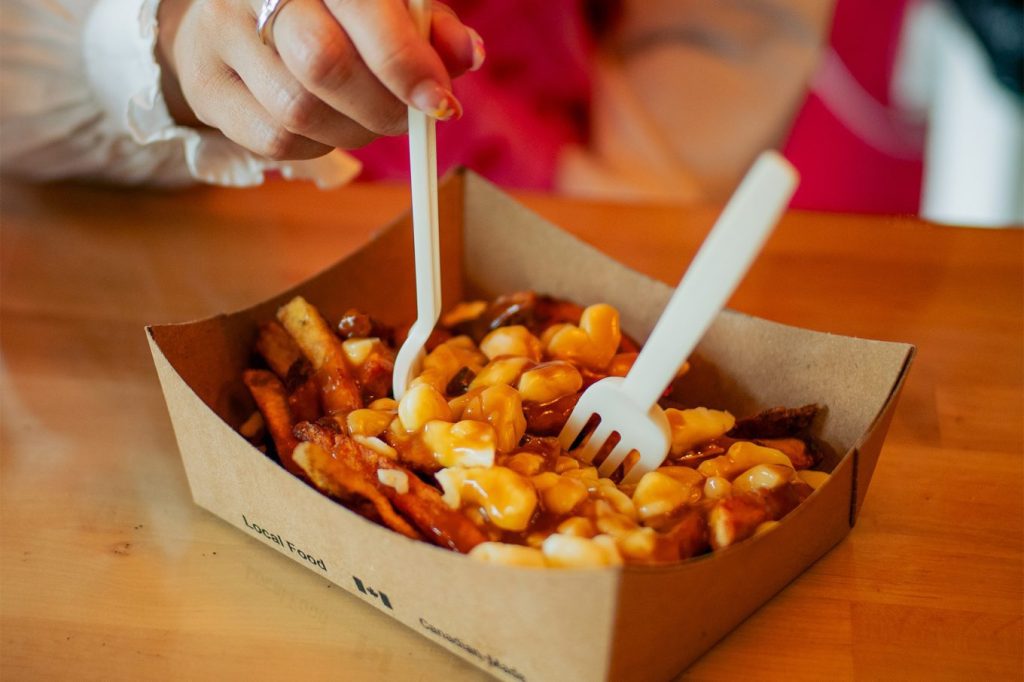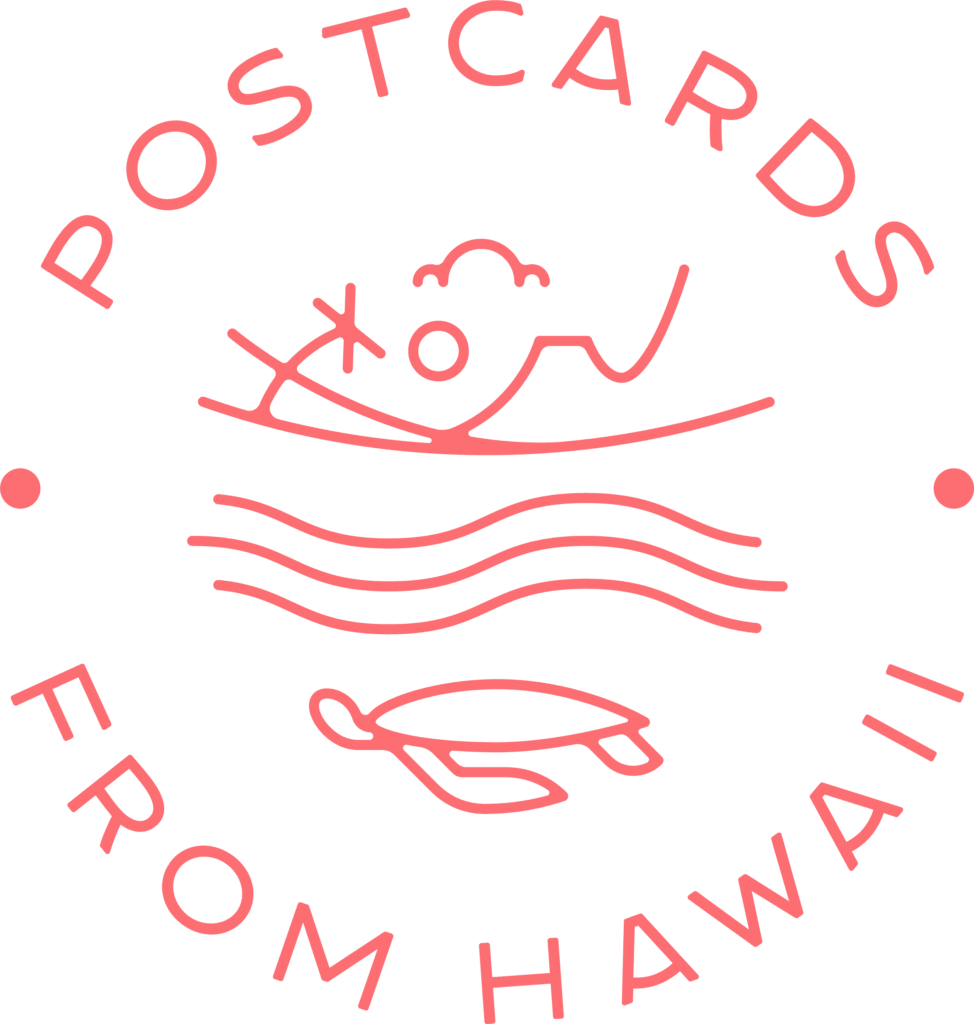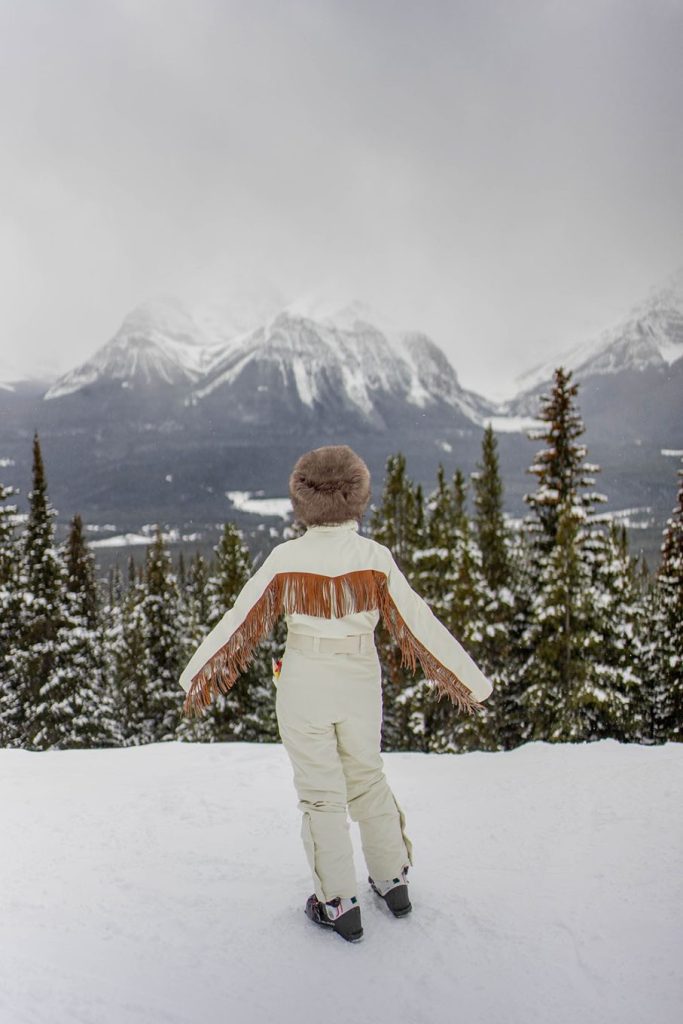“The greatest threat to our planet is the belief that someone else will save it” – Robert Swan.
More than ever, the time has come to take a stand against plastic pollution from land to sea. 8 million tons (this number IS shocking, you’re right) of plastic pollution enters our oceans every year causing 100,000 marine animals deaths each year.
With 40% of the plastic produced every year being single-use plastics, we all need to take responsibility and make as many sustainable swaps as possible to save our planet from irrevocable damage. The problem lies in idly going through life consuming excessive amounts of plastic which have sustainable and reusable alternatives, then incorrectly disposing it, without reusing or recycling, and without any awareness of the harm caused.
In this blog post I am focussing specifically on the environmentally-conscious swaps we travellers can make to make the world a better place. It’s no secret that the impact travel has on the environment is significant, so along with offsetting your travel I am sharing the 25 sustainable swaps I have made specifically on my travels, so that we can reduce our wasteful impact around the world:
Toiletries
The area you can make the biggest reduction of single-use items whilst travelling is with your toiletries. Toiletries are one of the leading contributors to throw-away items that build up in landfills, our oceans and even on the street! I can’t tell you how many strange places I’ve seen plastic ear buds/Q-tips in peculiar places. By making these simple and sustainable swaps you will be doing more for our planet than you could ever realise:
Bamboo toothbrush
Did you know that every plastic toothbrush that has ever been made since their invention in the 30s still exists? Why? Because each plastic toothbrush takes over 400 years to decompose and with each person using approximately 300 toothbrushes in a lifetime, well it’s a lot to take in right? So with those figures in mind, it’s about time we started using an alternative. Bamboo toothbrushes are eco-friendly, made from natural fibres and will decompose after use. The Humble Co. was founded in 2013 by dentist Noel Abdayem. He set out to create products that are not only good for us but are kind to our planet too. What’s even more admirable about The Humble Co. is that they also provide dental care for children in need all over our planet via their Humble Smile Foundation, and you can help too as it is funded directly by proceeds from every product sold.
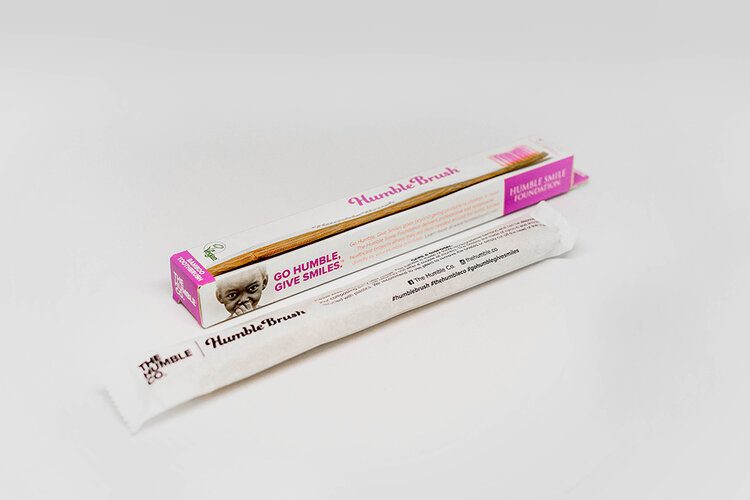
As well as the product being sustainable, the packaging is too. The boxes are 100% recyclable and the inside wrapper is compostable.
Chewing gum
Sticking (pun not intended but a happy coincidence nevertheless) with The Humble Co. let’s take a look at their chewing gum. It took me longer than I care to admit to realise that if my body can’t digest gum than neither can the planet… Most chewing gum is made from polymers which are synthetic plastics (complicated science stuff, stick with me here) that do not biodegrade and will therefore forever exist on our planet. The Humble Co. however, make a natural alternative made from chicle, a natural gum base from the Sapodilla tree, that doesn’t contain any artificial flavours or sugar, and since the company was founded by a dentist you can trust that it’s good for your teeth!
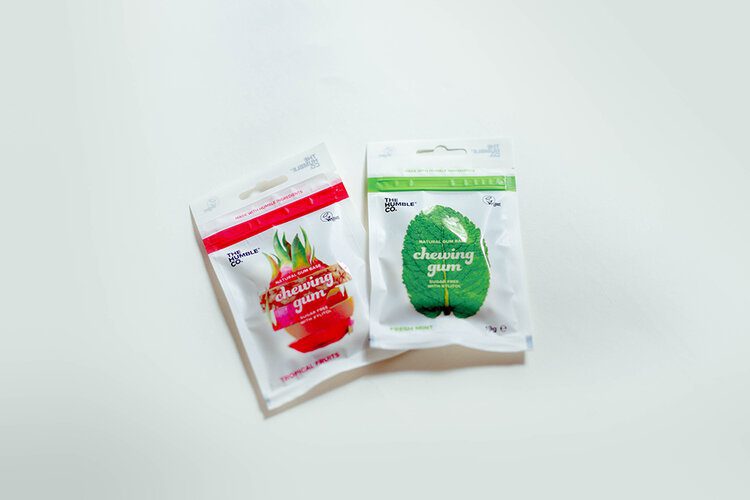
Why just stop at mint either, their natural chewing gum comes in lemon, liquorice and tropical fruits too!
Dental floss
Amongst many products, some of which are listed above, The Humble Co. also make dental floss. Over 70 million plastic dental floss containers are discarded every year so their solution was to make the packaging 100% recyclable, so it’s simply a cardboard box that does the exact same job with no risk to the environment.
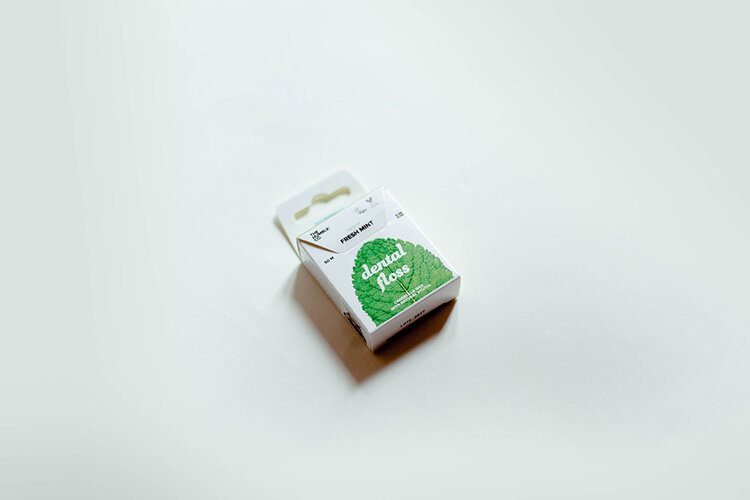
Bonus: The Humble Co. products are all vegan!
Bar of soap for hands and body
It’s time to stop using mini toiletries. As cute as it is to see mini versions of the products we know and love, they aren’t worth the damage they are doing to our environment. Travelling with solid toiletries means that not only will you always be prepared but by using your own packaging-free products you are eliminating the need for single-use mini toiletries all around the world.
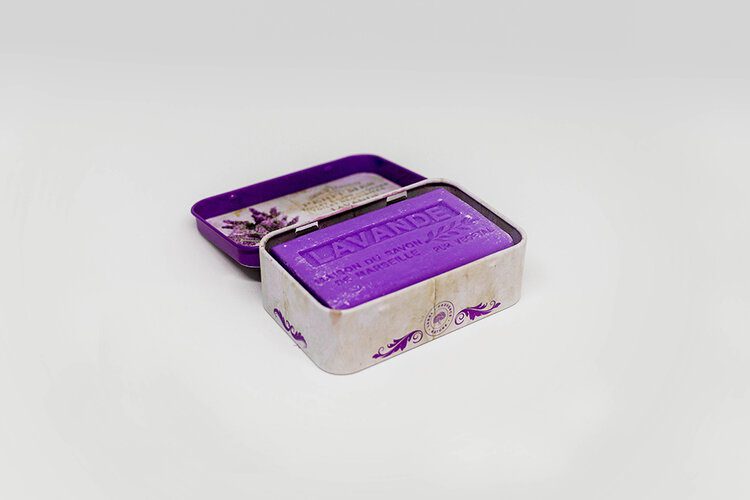
I use Maison du Savon de Marseille bars of soap for three main reasons:
They are sold without packaging
They smell amazing and have a HUGE variety of scents
They are made with shea butter which means they hydrate your skin as well as cleaning it and they last twice as long as any other soap
Plus you can pick up a reusable tin to store it in when you travel.
Another solid (pun intended) favourite of mine is from Anatomicals because they smell incredible!
Solid shampoo and conditioner
Just like a bar of soap (above), solid shampoo and conditioner bars will prevent the use of plastic bottles, you will always be prepared and they last up to three times longer than a regular bottle.
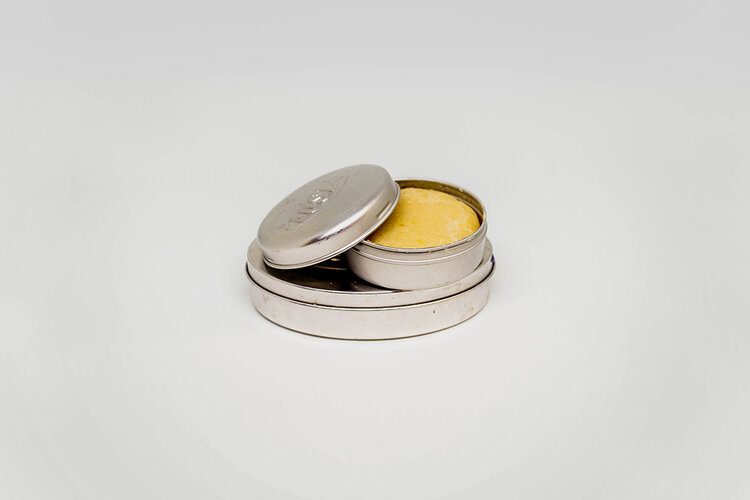
I personally use, love and recommend LUSH. They have a significant variety of both shampoo and conditioner bars and sell reusable tins for storage and travel.
Magic cloth makeup remover
Making the switch to magic cloths to remove my makeup last year was one of the best decisions I have ever made. These cloths completely eliminate the need for any bottled makeup remover, all you need is the cloth and water!
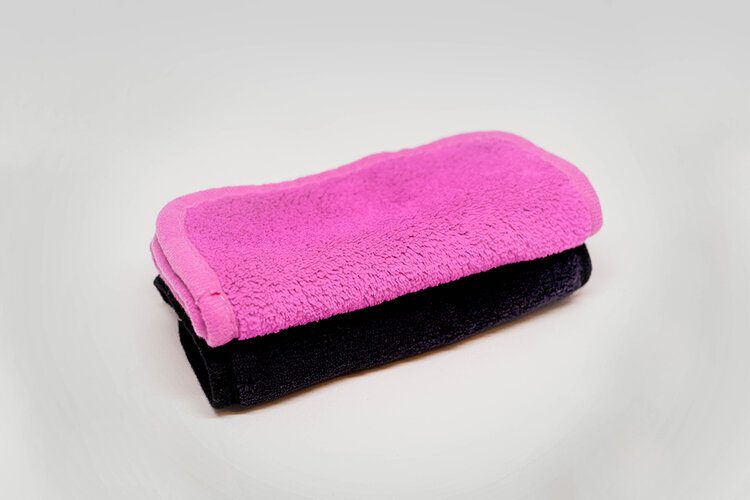
Simply wet the cloth and wipe away your makeup; its ultra soft woven fabric will remove all types of makeup, even waterproof. To clean your cloth simply wash it in warm water with soap and hang it out to dry. It is the most natural and gentle way to remove makeup without any risk of irritation from chemicals.
Zero packaging toiletries
Where possible, make a switch to zero packaging toiletries such as solids like soap, cleanser, shampoo, etc.
On the days where I wear a little more makeup than usual, I like to use a solid cleanser to clear my pores of anything gross. I simply rub a little into my hands, massage in into my face and wipe it away with a reusable cotton pad (see next) and warm water before using a responsibly packaged moisturiser (see two below). My current solid cleanser is “Like a Virgin” from LUSH. Its vegan formula cleanses, brightens and tones the skin, plus it smells exactly like fresh Sicilian lemons.
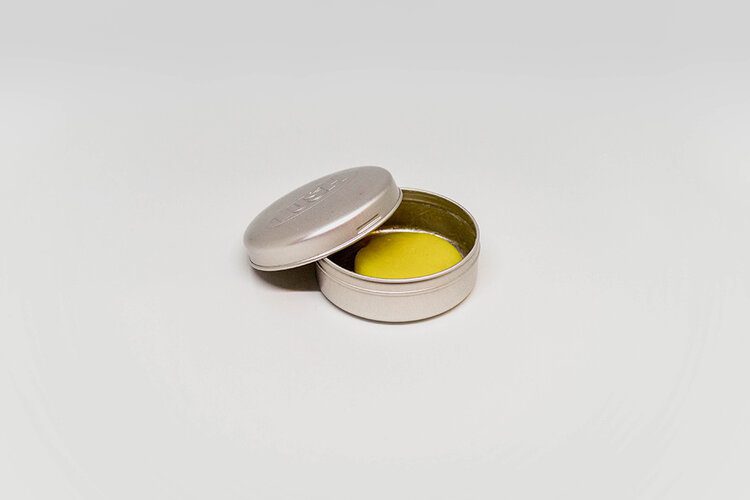
Cotton pads
To use those packaging free/solid toiletries, purchase some reusable cotton pads, therefore eliminating the need for single-use ones. These will not only save you money but they will also save the environment. To clean them, just pop them in a mesh bag (it saves you from having to fish them out between your socks and pants) and into the washing machine.
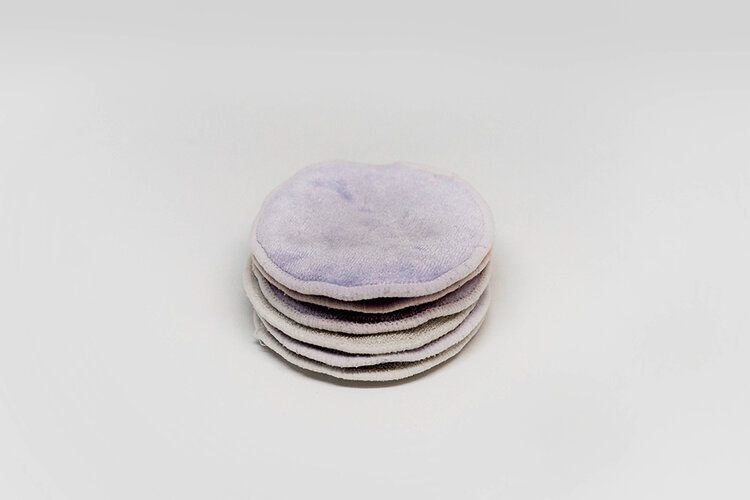
Recycled packaging toiletries
Not all toiletries can come packaging free otherwise we’d spend an awkward journey home trying not to spill liquids from our hands. Products such as moisturisers, lotions, scrubs etc can be purchased from stores such as LUSH who use recycled packaging. Plus what’s even better about LUSH is that if you return five of their pots (clean) they will repurpose them and you will receive a free face mask!
I only use facial moisturisers from LUSH for this reason and highly recommend their Vanishing Cream. Its combination of lavender and rose water absorbs immediately into the skin without any greasy residue, leaving your skin feeling soft and nourished. I’ll confess it’s not cheap but a little goes a long way and it’s worth the price to save the environment.
Mini travel bottles
If for your own reasons you still need/want to use products that come is plastic packaging (I’m not judging, the only products I have found that tame my frizzy locks unfortunately are packaged in plastic) then I suggest you buy the biggest bottle you can so that it lasts longer, and with that fill smaller reusable travel bottles.
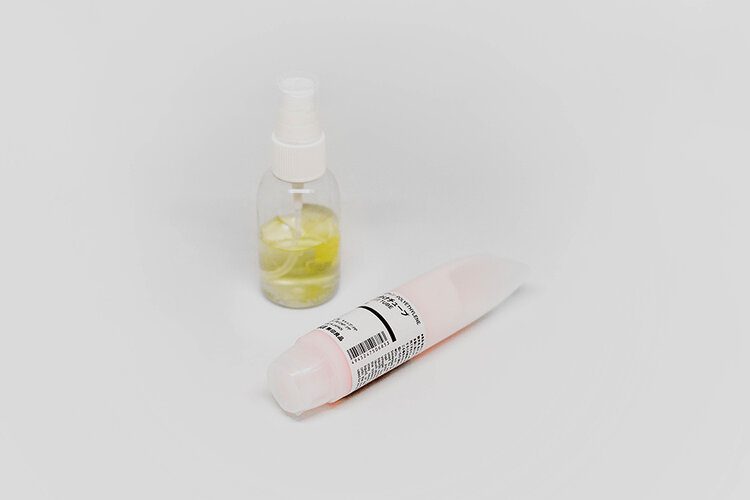
Natural deodorant
Far too many deodorants come in single-use plastic bottles so consider swapping to one with more responsible packaging that also has natural ingredients so it’s better for both your body and the planet.
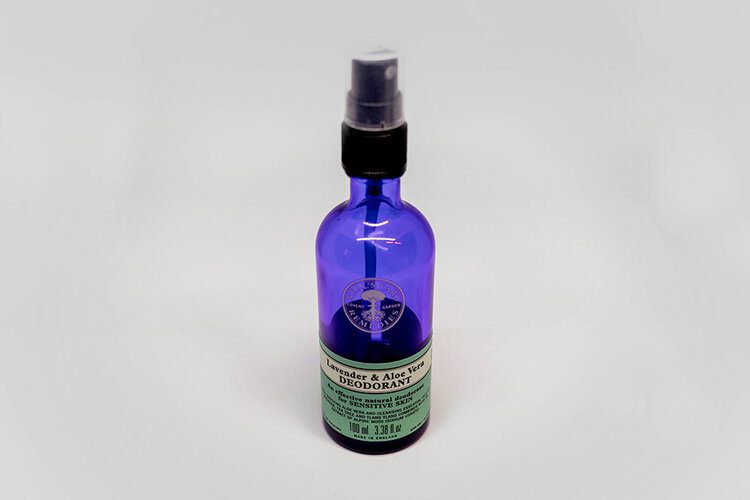
I am currently using the Lavender & Aloe Vera spray on deodorant from Neal’s Yard because it is made entirely from natural ingredients and the bottle can be repurposed. If you do decide to dispose of the bottle then you can recycle both the glass and paper label and if you take the plastic pump into a Neal’s Yard store, they will recycle it for you.
Menstrual cup
For any person who has a period, swapping from tampons and single-use pads to a reusable menstrual cup is one of the best decisions you can make for the planet, your body and your purse! I can’t express how much better my life is now that I have made this swap or how empowered I feel to be bleeding so responsibly every time my period comes around, but to get an idea take a look at Travelling on your period with a Saalt menstrual cup, a blog post I wrote all about exactly why menstruating individuals should switch to a menstrual cup!
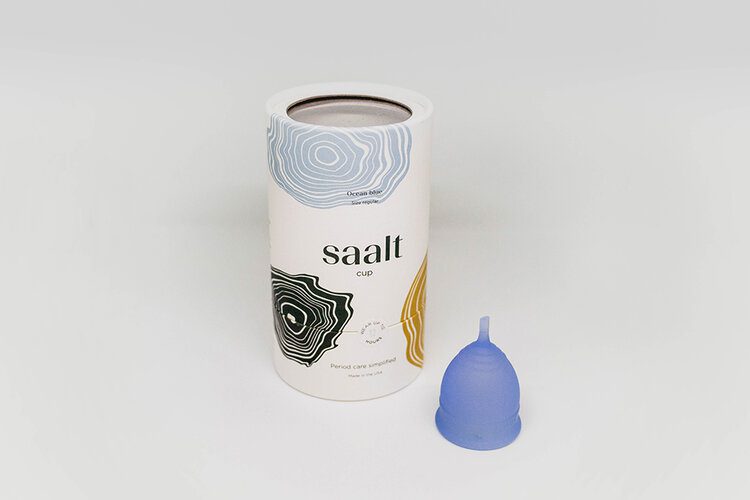
If for some reason you don’t want to read my very informative blog post (shame on you, I put a lot of blood, sweat and tears into that…) then here are some figures to glance at:
Over 4.3 billion menstrual hygiene products are thrown away every year in the UK and 20 billion pounds in the USA
It takes longer than the lifetime of the user for just one to decompose
One cup prevents approximately 3000 tampons from ending up in landfills
One cup lasts 10 years and will save an average of £1,150 or $1,500
Saalt are partnered with Her International, an organisation dedicated to keeping girls in school when they get their periods. With every cup sold, a portion of the profits go to Her International, giving girls the opportunity and means to stay in school during their period so they can receive the education they deserve which will lead to a better quality of life.
If you want to purchase your new Saalt menstrual cup from their website, use “POSTCARDS10” for a 10% discount on your order!
Menstrual pads
If something that needs inserting isn’t your thing just yet (no pressure, you do you boo) then make the switch from single-use menstrual pads to reusable cotton menstrual pads. They are made from natural charcoal bamboo fibres and are incredibly absorbent. To clean them you simply pop them in the washing machine with a dark load.
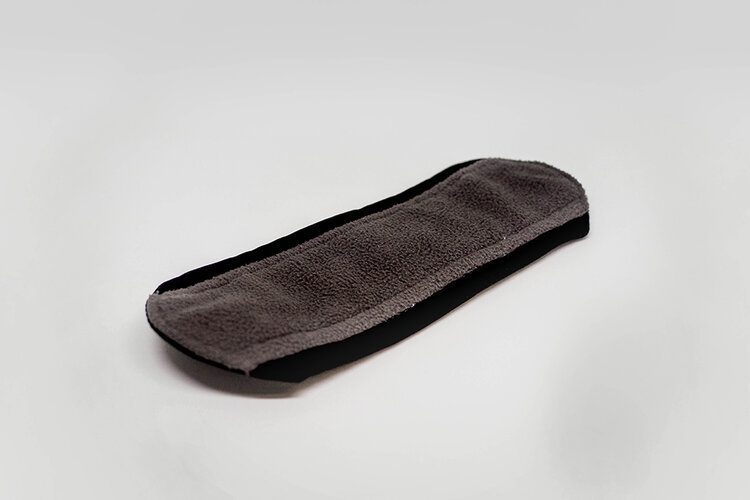
I currently use High Oh’s reusable pads during evenings where I don’t fancy inserting my cup – you know the really lazy one where you just lay in bed binge eating with Netflix.
Razor
According to a recent report by Statista, 163 million consumers in the United States and 5.5 million in Great Britain used disposable razors in 2018, and as they aren’t usually recyclable you can bet they’re poisoning our earth and making their way into our ocean.
There are two ways around this and they are to switch to a reusable razor whereby you are only replacing the head rather than the whole body and the other is to use a safety razor where you only need to replace the blades.
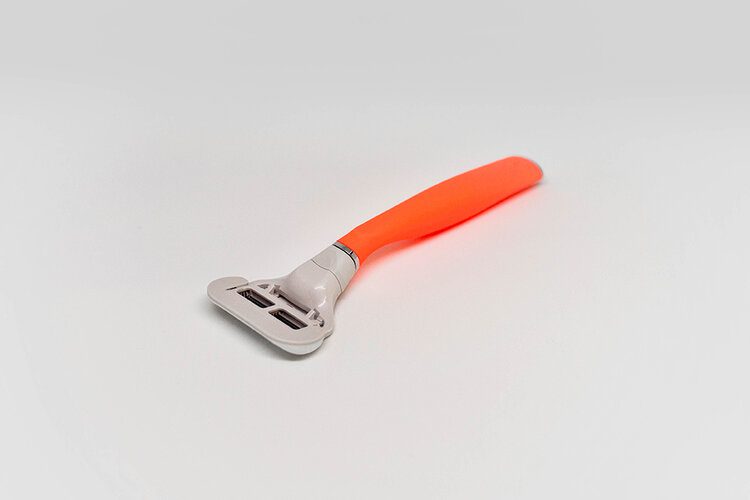
I am currently using a Flamingo reusable razor whereby I remove the head only but I do intend to switch to a safety razor.
Have you ever noticed how disposable razors are mostly targeted at women and come in all shades of pink but men’s razors are mostly reusable? What’s up with that? Flamingo have recently been taking massive stands against the stigma of female hair removal from the design of the razor to embracing your body hair.
Shower cap
As most disposable shower caps are made from a PVC-based material, they are not recyclable. Instead of using the disposable ones in hotels rooms, purchase a reusable one so that it has a much longer life.
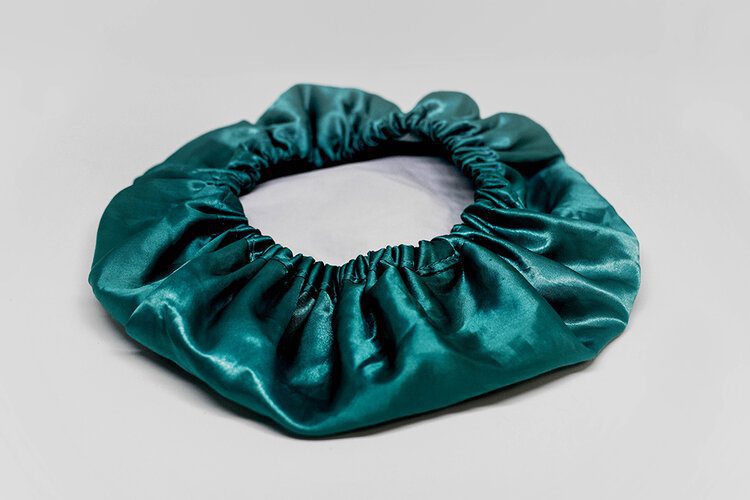
Mine is from Boots but I recommend you get one online with a fun pattern!
Cotton ear buds & Q-tips
In May 2019 plastic stemmed cotton buds were finally banned in England with all retailers required to make the switch to compostable paper, wood or bamboo stems before April 2020. Unfortunately this isn’t the case for the rest of the world, so you cannot trust that your hotel or the drug stores/chemists where you travel to will stock compostable ear buds/Q-tips, so travel with your own ones.
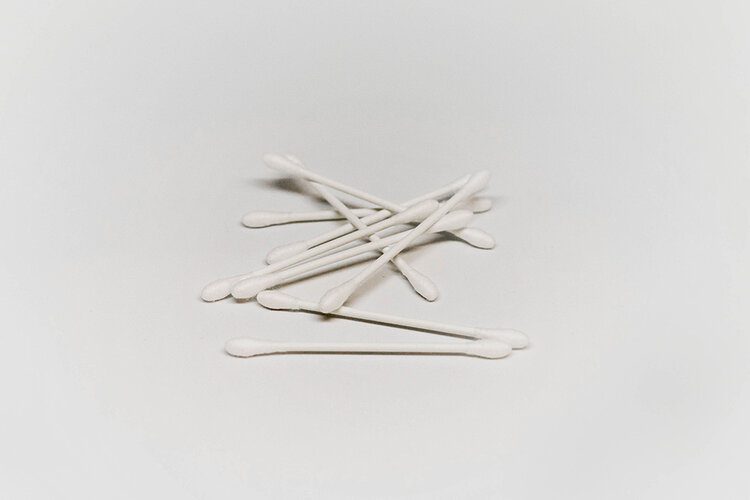
In the UK you will find compostable ones everywhere from chemists to supermarkets. I even saw The Humble Co.’s bamboo ones being sold in Oliver Bonas the other day.
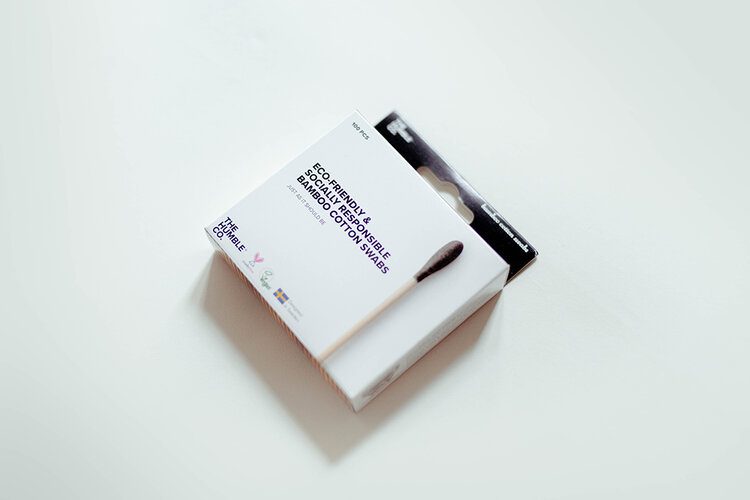
Towels
One of the biggest areas that hotels produce waste is water. Let alone the plumbing in every room, the daily washing of towels and linens produces a significant amount of water waste. Two ways you can avoid adding to this whilst travelling is to leave a note for housekeeping asking that they do not change your towels and sheets during your stay, and then use your own towel. Have you noticed that despite the signs in almost every room claiming the hotel’s green initiative, and telling you that if you fold your towels they won’t wash them to save water wastage, for some reason your towel always disappears off the hook and a fresh folded set is on the rack? Yeah, not cool!
Dock and Bay’s towels are compact, quick dry and sand resistant, all of their packaging is 100% biodegradable and they have an eco collection which features towels made from 30% recycled materials. Plus they come in all sorts of cute colours and designs all named after popular travel destinations! They also have hair wraps which save you from needing two towels if you have longer hair.
Food
The second best way to reduce your plastic waste whilst travelling is to travel with reusable food items that prevent single-use plastics such as water bottles and coffee cups from being consumed excessively. By using a reusable water bottle you will be saving the planet from 40 plastic bottles PER YEAR! Here are few ways you can save the planet and also money by not having to eat out all the time:
Cutlery
Whether it’s bamboo or metal, start travelling with a set of cutlery to prevent the need to use plastic cutlery. This kit will also prove to be very helpful in hotel rooms if you want to rustle up a bite to eat.
I bought mine as a camping KFS set from Mountain Warehouse for £4.99. I chose metal because Michael (my partner) has a habit of snapping our bamboo straws and I wanted our cutlery to be sturdy and last as long as possible.
We picked up this little wrap for them on a market in Brazil but they’re super easy to make if you want to do it yourself. If not, this specific KFS set from Mountain Warehouse clicks together so you won’t have stray cutlery in your bag.
Bamboo straws
Throwing it back to The Humble Co. they also make bamboo straws to accompany their many other bamboo alternatives. With over 8.5 billion plastic straws used annually (yes, you read that correctly), it is imperative that for the sake of our planet, and all the creatures living on both land and sea, we make the swap to a responsible choice. The most sustainable being bamboo because it can be reused (unlike paper) and will decompose naturally (unlike glass and metal). Of course paper, metal and glass are all 100% better alternatives to plastic.
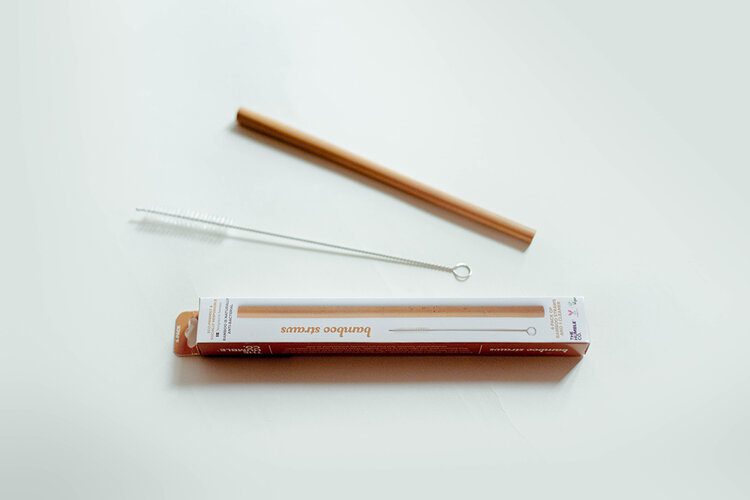
The Humble Co’s. bamboo straws come with a cleaner as well as a clean conscience.
Water bottle
One of the best investments an environmentally conscious, actually ANY, traveller can make is a reusable water bottle. We all need to stay hydrated, especially when we’re out and about exploring, hiking, snorkelling etc. So to prevent the need for endless plastic bottles make the switch to a reusable one. By using a reusable water bottle, you will save our planet from 40 plastic bottles a year!
I used to recommend S’well bottles but after my second one I have come to learn the rubber seal isn’t reliable causing the bottles to leak. So I recently switched to Dopper, a company based in the Netherlands whose mission is to empower people to choose reusable over single-use water bottles to protect our world’s water resources.
Reasons why I love Dopper:
Every purchase helps to fight to keep our oceans clean
The company has launched multiple initiatives around the world to provide clean water to communities in need, and they offer educational programmes to raise awareness of plastic pollution
The bottles come in a variety of materials and colours
The bottles are sustainably made
The bottles are a bottle and cup in one
They have thermal bottles that stay hot for 9 hours and cold for 24
You will be able to fill up your water bottle in pretty much any restaurant or café and many public places such as airports, shopping malls and parks have water fountains. A bottle such as Dopper’s is particularly brilliant for preventing plastic usage on flights as you can fill your water bottle in the airport prior to your flight and if you fancy any other drink, you can unscrew your cup and use that instead of a plastic one.
Coffee cup
Along with a water bottle, a reusable coffee cup is one the the best sustainable swaps you can make for the environment. Approximately 16 billion disposable coffee cups are used each year, many of which aren’t recycled.
My current coffee cup is from Polū, a company founded by two Aussie eco-warriors whose mission is to eliminate single-use products and promote Zero Waste living. Their bamboo fibre coffee cups are ethically sourced and completely compostable, whilst their silicone sleeve and lid are both recyclable.
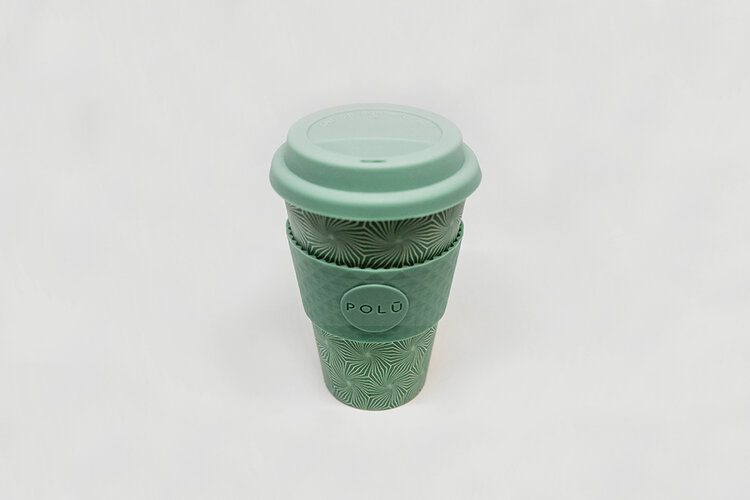
What’s better is that with every purchase of a Polū cup, 50p is donated to AccesSurf, a Honolulu based non-profit charity organisation that provides water-based programmes, services, and events for people with disabilities.
In addition to saving the planet from an abundance of single-use cups, another perk of using a reusable coffee cup is that most leading coffee shops offer a discount when you present your cup. In England for example you can save 25p in Costa and Starbucks and a whopping 50p in Pret.
If you want to buy your very own compostable Polū coffee cup, saving both the planet and helping AccesSurf bring joy to people with disabilities in Honolulu then click here to make your purchase, and use “POSTCARDSFROMHAWAII” for 10% off your purchase!
Sandwich wraps
One of the best ways to save money when travelling often is to pack up your own food for the day instead of having to constantly buy meals out. To read more about this check out my blog post, 6 items for making food in your hotel room.
To prevent using plastic wrap or sandwich bags, purchase a couple of wax wraps, made with either bees wax or plant resin for vegans. Their texture means you can easily fold them around your food and wipe them clean between each use. They’re also great for taking home any solid leftovers should you choose to eat out. You can also get a tin so you can make up and eat salads, pasta etc. on the go or you can take them to eateries to get your food to go packaging free.
Shopping
The third biggest area that we travellers can reduce our wasteful impact on the planet is with shopping. I know we’re not always prancing around on the beach in swimwear and buying handmade treasures from local markets, but when we do, when can do it responsibly. Here’s how:
Shopping bags
Plastic shopping bags have a lifetime of mere minutes to hours and yet they can take up to 1,000 years to decompose! We have long outgrown the need for plastic shopping bags with reusable alternatives for every thing we have ever used them for. Years ago I used to travel with plastic bags for the following uses:
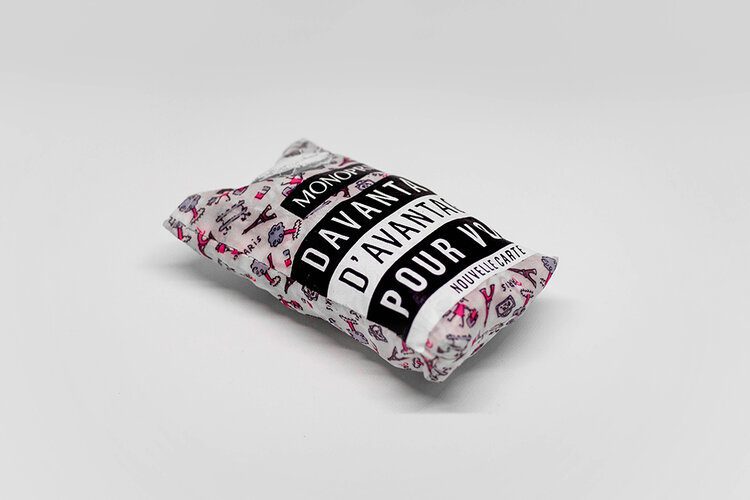
Use: Packing clothes in to keep them organised.
Replacement: Reusable packing cubes.
Use: Storing my shoes to protect anything in my suitcase from getting marked or dirty.
Replacement: Reusable waterproof shoe bags.
Use: Shopping, I would get new plastic bags every time I went shopping for souvenirs etc.
Replacement: Reusable shopping bags.
There really isn’t a need for plastic shopping bags anymore. Just keep a couple of reusable bags on you and you’ll never be caught out. You can buy foldable ones from anywhere online to your local supermarket, and virtually every shop selling food or clothes will have a reusable bag you can purchase should you ever be caught out.
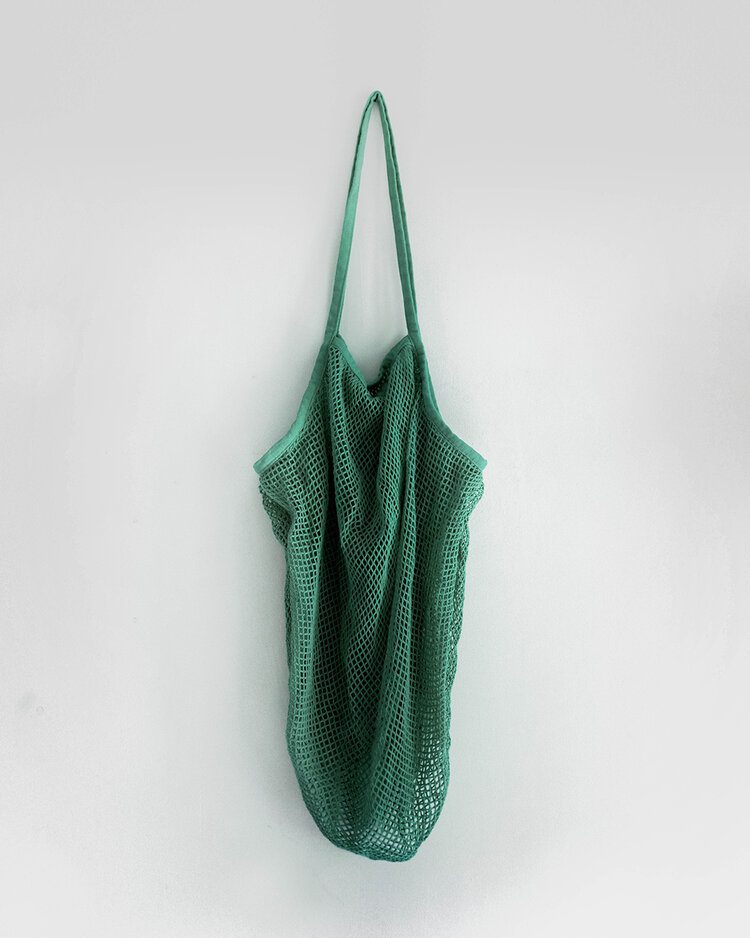
If you have self catered accommodations when you travel and require a supermarket shop, try to buy products that either have zero packaging or recycled packaging. I realise this depends on the place you shop but it’s good to keep it in mind.
Clothing that is made from recycled bottles and organic cotton
Many leading brands such as ASOS and H&M have started to get onboard with making garments from recycled bottles and organic cotton.
Clothes made from recycled bottles repurpose something single-use into something that can last you for years to come and make you feel good about it every time you wear it. Although it doesn’t sound comfortable you would never be able to tell that it’s made from plastic. The most common garments you will find made from plastic bottles is swimwear, so next time you need some new swimmers whether it’s for doing laps or posing for the ‘gram, consider something that not only looks great on you, but is also doing great things for the environment.
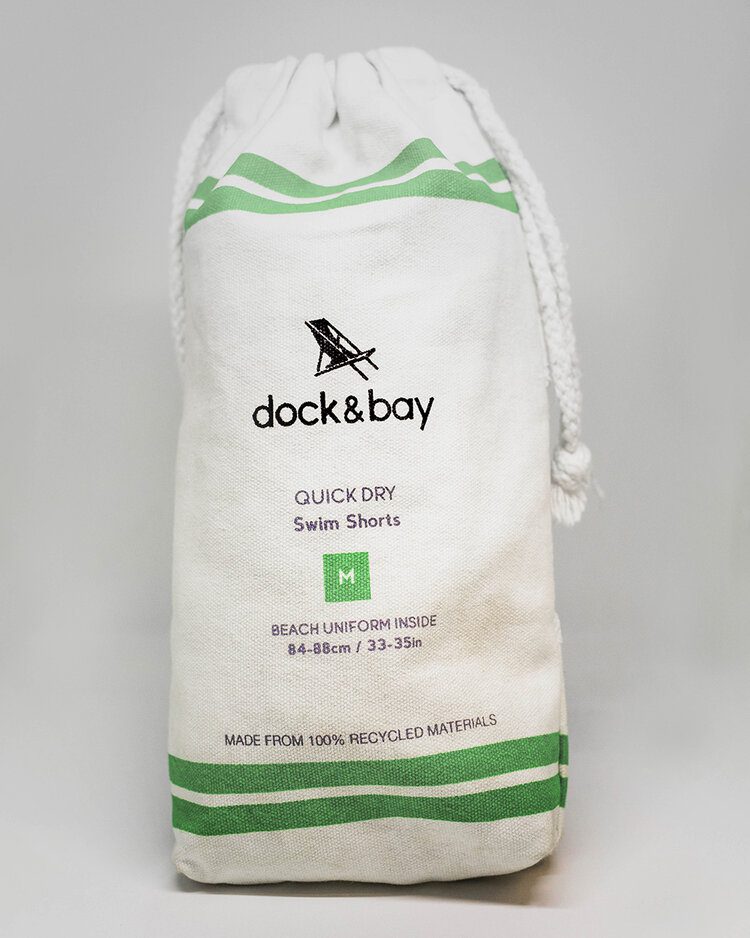
For women I recommend looking at ASOS because they offer a full range of responsibly recycled swimsuits and bikinis for maternity, tall, petite and regular.
For men I recommend looking at Dock & Bay. Their shorts are made from 100% recycled plastic bottles with 6 plastic bottles in every pair! I bought Michael a pair for his birthday last year (before I started working with them) and he loves them because they’re responsible, stylish and quick dry!
Second hand clothing
Consider buying your clothes from a second hand store either thrifted or vintage. I’ll be honest, I used to be so grossed out by this and it has taken me up until this year to actually start doing it and let me tell you, few things overjoy me as much as finding a bargain!
.
There you have it, 25 sustainable swaps that we travellers can make to reduce our wasteful impact on the environment. Of course, these don’t just apply to travellers, please share this blog post with everyone you know who has a passion for saving the world and anyone who needs to make a start.
For more ideas on living sustainably to help protect our planet I strongly suggest purchasing “How to save the world for free” by Natalie Fee. This witty book offers advice on how to reduce your wasteful impact on our planet from food to sex (you bet sex was the first section I read!). There’s even a section on travel.
Aloha, Gabriella



